Mid Canterbury farmer Wayne Gregory’s ute meanders towards the ‘Road closed’ sign, away from where the Ashburton River’s south branch, aided by thunderous rain, has decided its own path.
The river surges across paddocks, through trees, and destroys the road to Ashburton Forks – one route to Mt Somers.
What was once a mismatch of irrigated-green rectangles and circles at Valetta is now awash with murky brown. The brooding grey clouds overhead promise more.
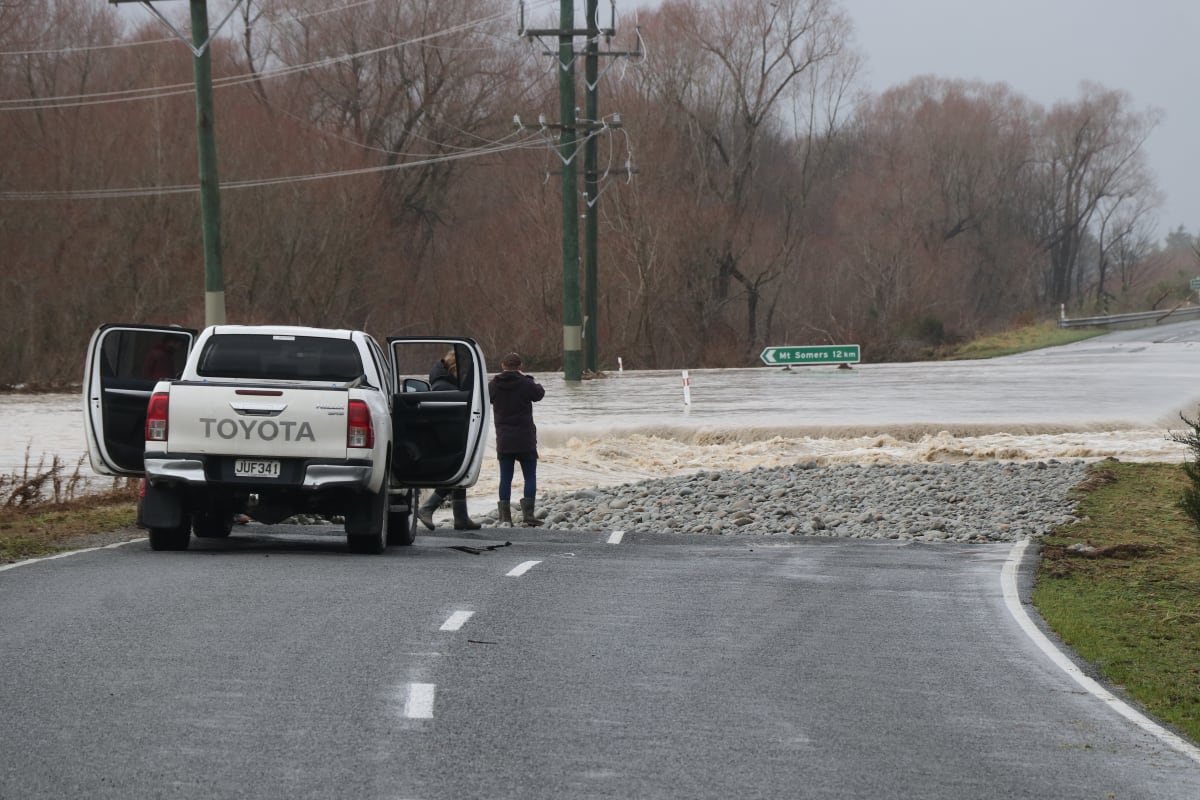
Nearly a third of Gregory’s 325ha farm – mixed cropping and dairy grazing – is under water. The fourth-generation farmer and wife Karen might be impatient for the water to clear so they can assess the damage to fences and culverts, but they accept this is the way of things.
The last time this magnitude of flood happened – so he was told by his father and grandfather – was sixty years ago. “We’ve always known this event’s going to happen. You never want it to happen, but, you know, it happened in ’61. The old timers always said, the water was right across, varying from about 3m down. That’s exactly what we’ve got again now.
“We’ve just seen history repeat itself.”
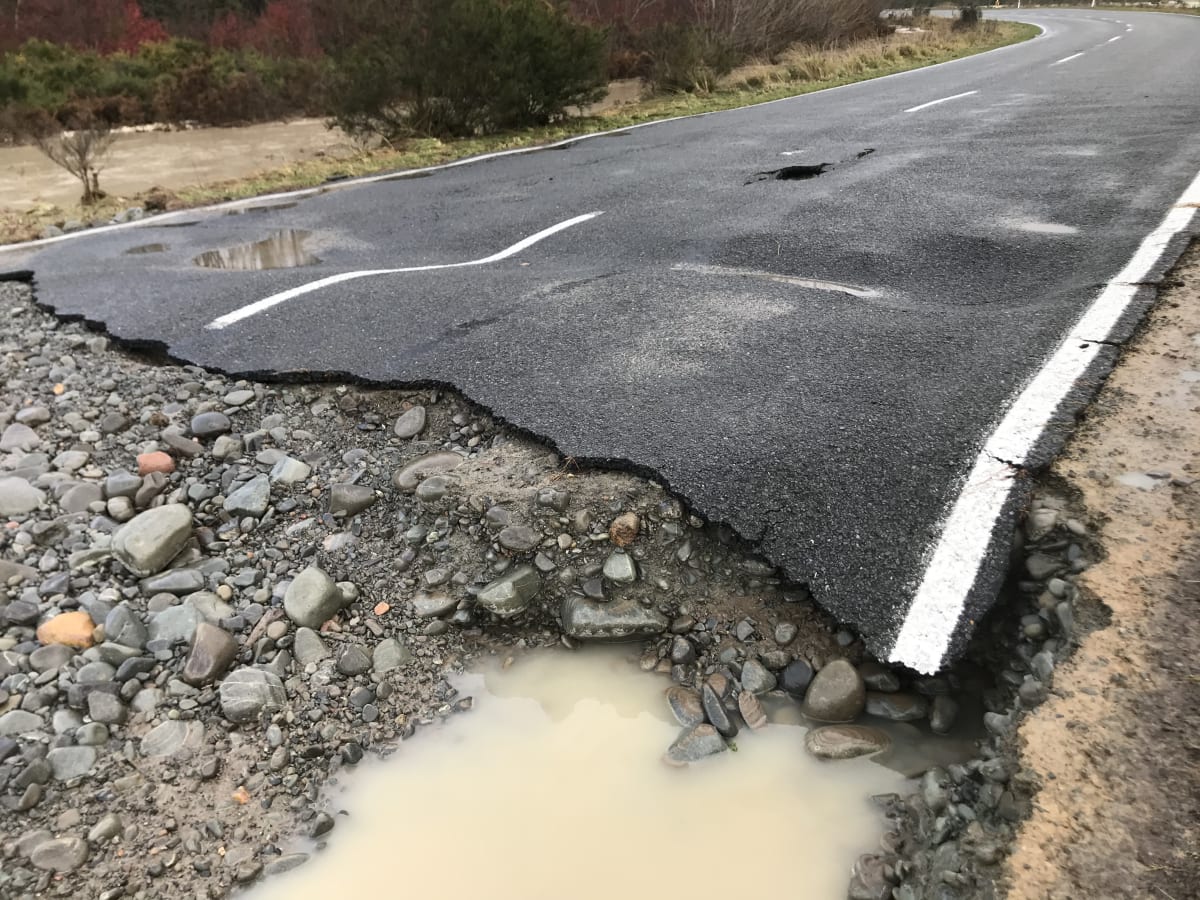
It’s at this point in our conversation the clouds seem to close in a little, taking on a tinge of blue, perhaps.
“This Government will tell us that it’s global change or something, and has never happened before.”
His voice drops, like a school master summing up the day’s lesson. “You’ve just got to live long enough. Or have a memory.”
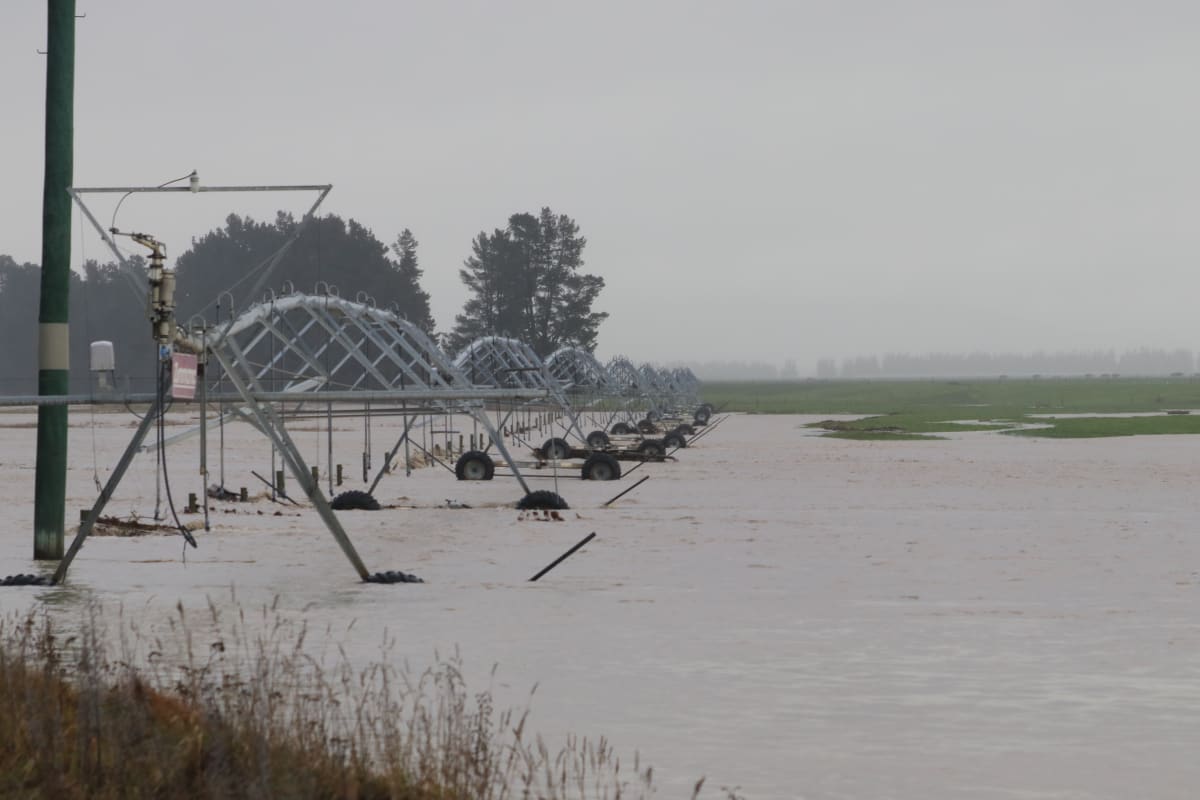
Mt Somers, not far from Gregory’s farm, has had some of the most intense downfalls of a storm that has lashed Canterbury since Saturday. The resulting flooding has sparked a province-wide state of emergency, after rain and rivers severed highways, damaged bridges, and forced evacuations.
Rural back roads have become default highways, albeit peppered with orange cones as flooded fields spill onto the roads. There are more exclamation marks on orange road signs than you’d see in a pre-schooler’s picture book.
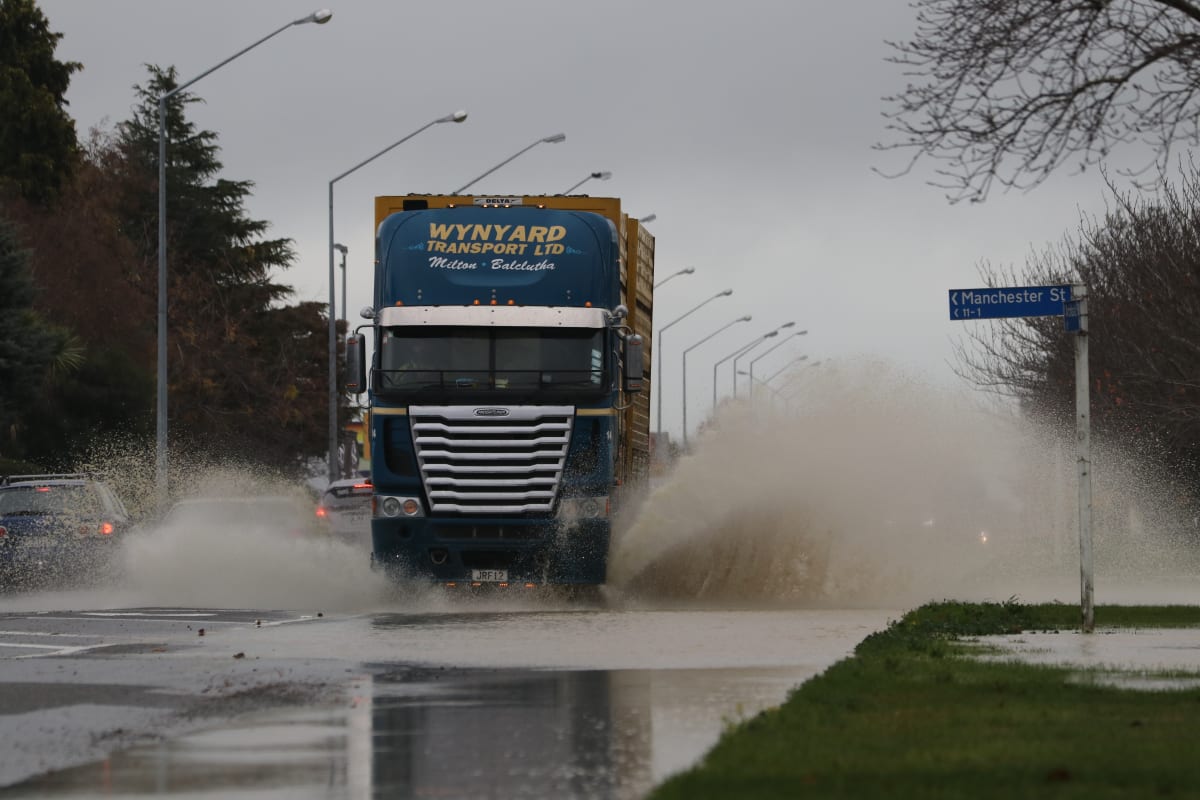
Truck and trailer units barrel down narrow roads past paddocks more fit for paddling. Sodden farm animals cluster in fields, while pivot irrigators lie dormant, redundant.
As Gregory, the Valetta farmer, says: “It’s Mother Nature. You can’t beat it.”
Over in Ashburton, nearer the east coast, clusters of people gather at either end of the main river bridge, separating the main town from its southern suburb of Tinwald. For some, it’s not the first time.
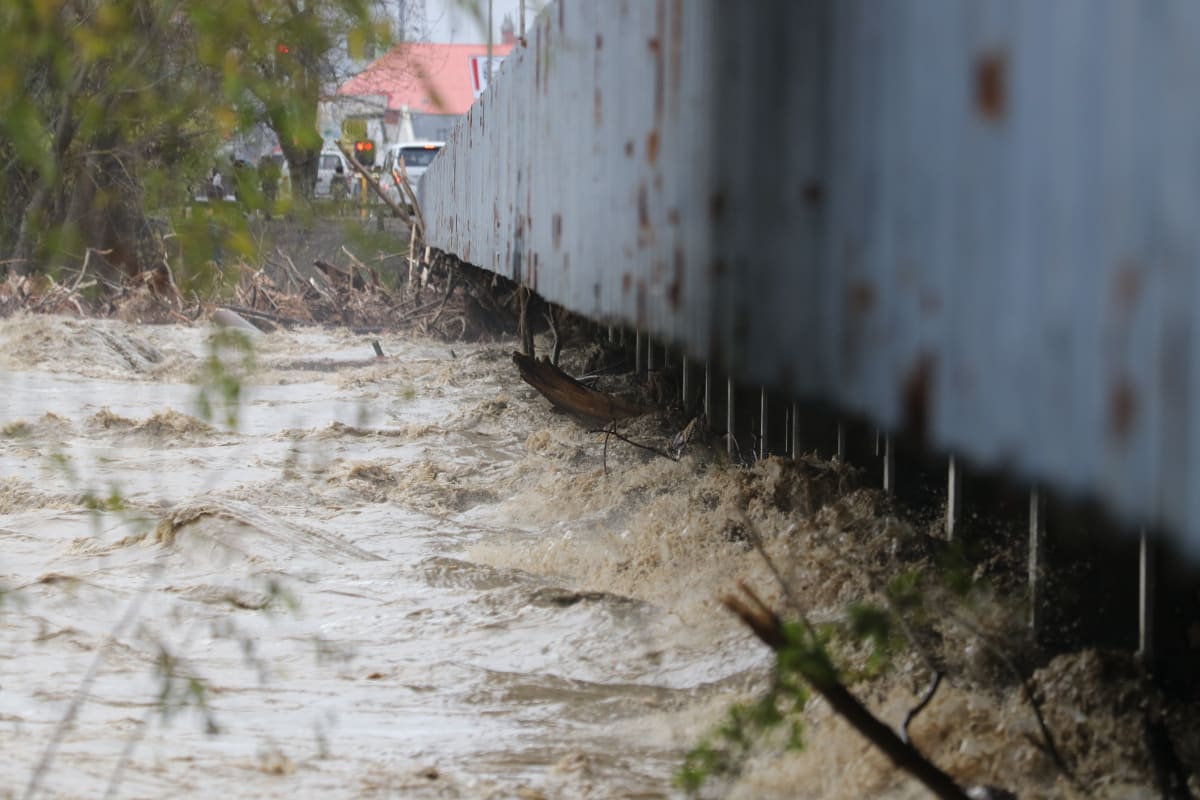
“You could feel the bridge vibrating yesterday underfoot when you walked across it,” Skip Muir quips, adding: “It was quite nice.”
Police tape now blocks the pedestrian bridge on either side of the road bridge. Muir reckons the fast-flowing river was a foot higher on Sunday. The 51-year-old, accompanied by his family, says gleefully: “I’ve never seen it in my lifetime – this is great.”
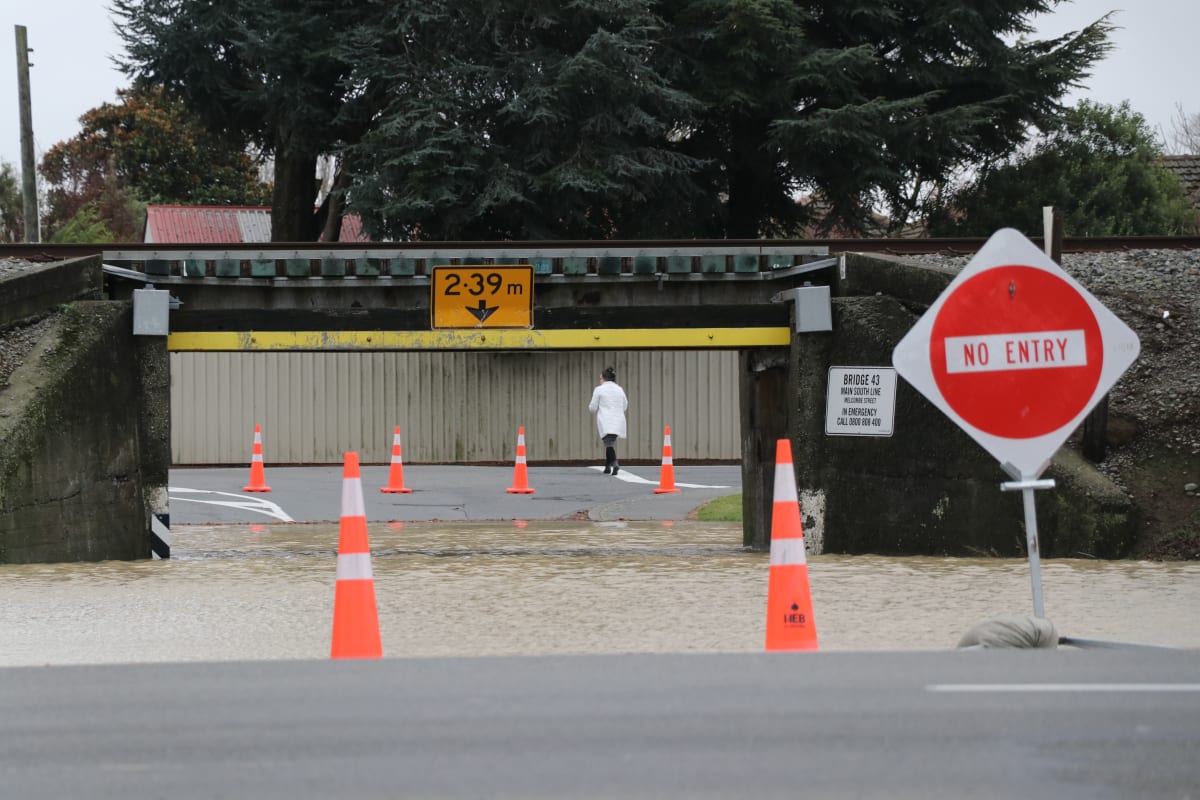
“I’ve talked to people older than me and they haven’t seen it like this ever. I talked to dad and he said it’s never been like this.”
His father is 75. “We’ve seen it bank to bank but never, never like this. Never this much.”
In Tinwald, a road under a rail bridge has been closed by deep water. On the east side, sheep graze, while nervously watching the flood water crossing the lower section of pasture. On State Highway 1’s northbound lane, stock trucks plough through surface flooding, creating spectacular plumes of water.
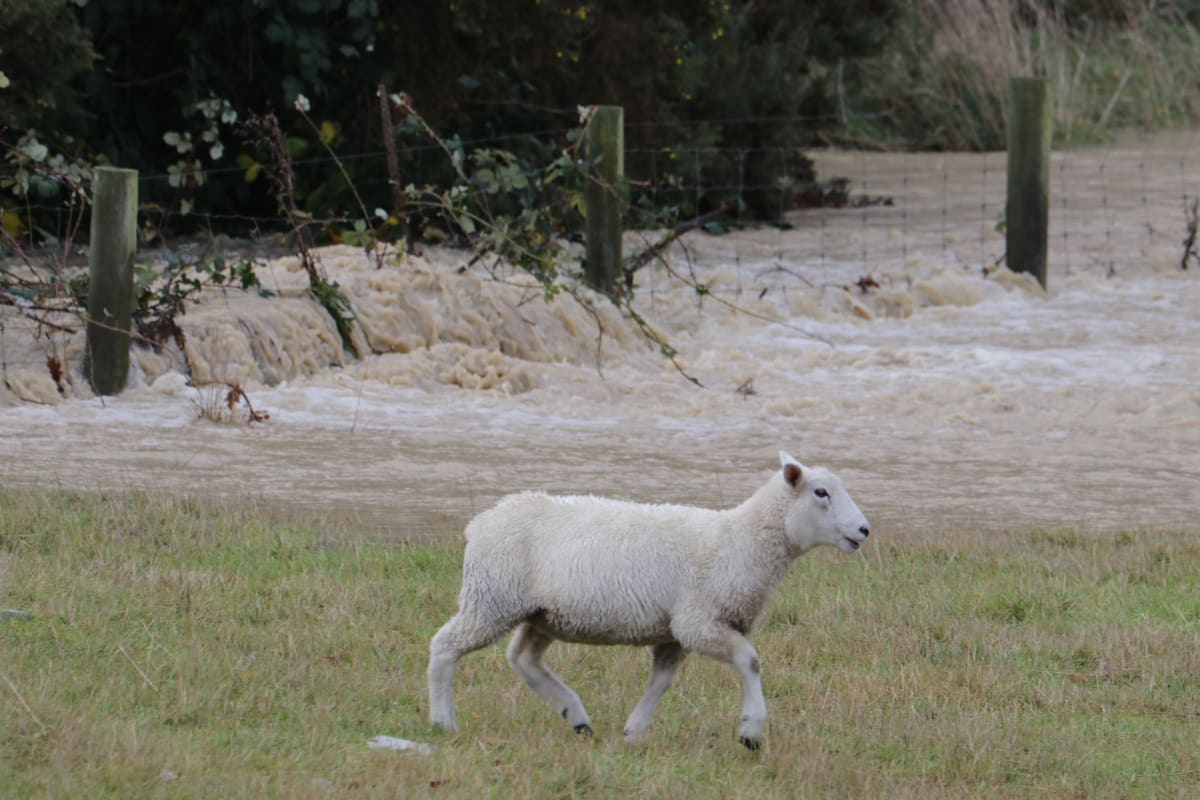
Debra Curtin, of Ashburton, who’s taking snaps on her phone at the Ashburton River bridge, points to the car parks leading to the riverside Lake Hood Trail. “Seeing that flooded has gobsmacked me.”
Back at Valetta, farmers Wayne and Karen Gregory combine for a great double act. After Newsroom asks a question, and before her husband has time to speak, Karen indicates the answer by nodding vigorously or shaking her head.
The passenger in the back seat interjects with comedic comments, like that Wayne will now be more prominent in the media than Federated Farmers’ Mid Canterbury president David Clark. (That must have hurt – Gregory confides he doesn’t like the media, and implores Newsroom to be kind.)
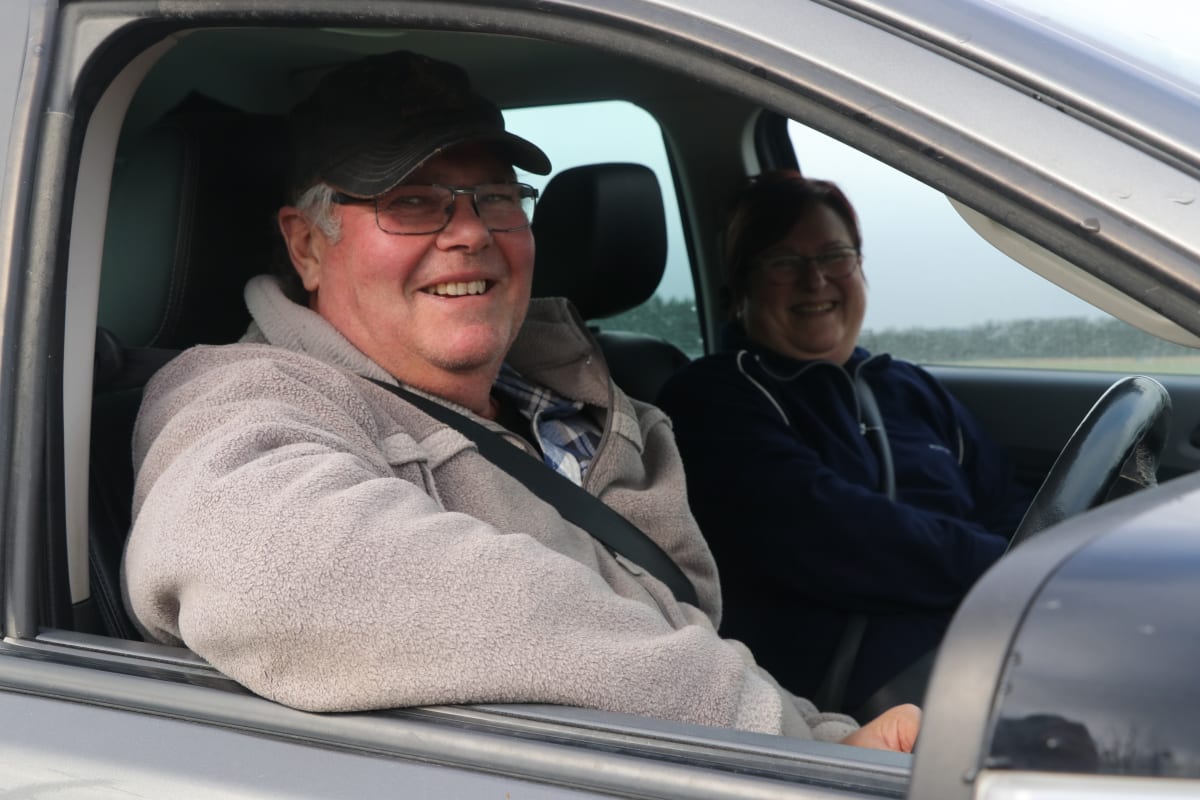
They’re heading home for about 45 minutes. (“We’ve got radiators,” Karen enthuses. “Diesel radiators,” adds Wayne. “Really nice. It’s nice going to home to a warm, dry house – we used to be in a 114-year-old villa – it’s very nice being in a near-new house.”)
Then, at 3pm, they’re heading out again to feed stock – they’ve got 2500 lambs at the moment, and 1000 grazing dairy cows. (They cleared the river flats before the weather hit – or as Gregory puts it: “We had everything up on Saturday.”)
This year has been incredibly dry, Gregory says. “If you take the irrigation out, we’re in one of the droughts in the ‘80s. We’re all irrigated now, which helps no end. It’s changed our farming practices and I think to the better.
“We still have to mitigate Mother Nature. You work with her and we react the best we can to stop problems. But you can never beat her.”



